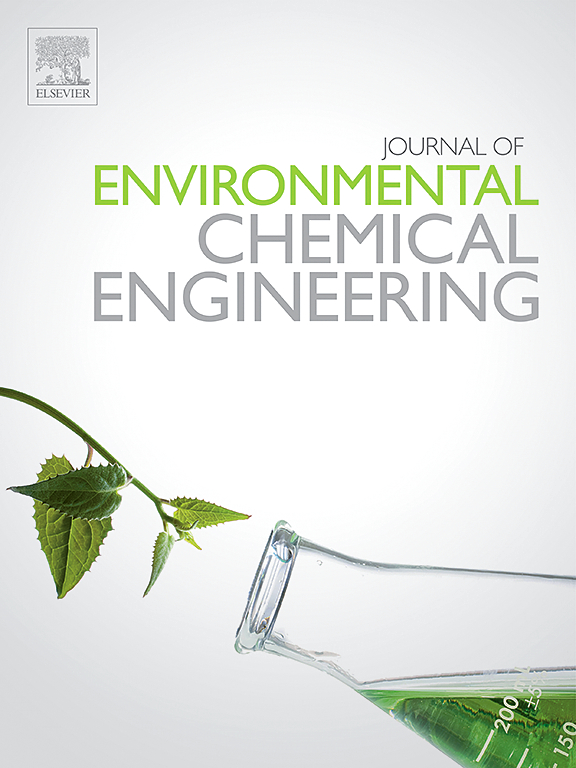微藻及其衍生生物产品的生产是否可持续?概述循环生物经济和零废物方法的挑战和机遇的元综述
IF 7.4
2区 工程技术
Q1 ENGINEERING, CHEMICAL
引用次数: 0
摘要
微藻是多种生物制品(蛋白质饲料和食品、营养品和药品的高附加值化合物、生物燃料、生物肥料和生物塑料)的可再生和多功能原料,具有二氧化碳生物封存的潜力。虽然以微藻为基础的生产系统已经引起了重大的科学兴趣,但其技术-经济-环境可行性仍然受到许多限制的挑战。关键的研究问题出现了:扩大基于微藻的生产系统的前景如何?微藻生物产品能实现真正的可持续性吗?本研究旨在对包含经济和环境科学信息的近期文献进行系统的元综述。叙事综合与数据收集、同质化和评估相结合,提供一个概括性框架,从技术经济分析和生命周期评估中捕捉最新趋势,从未来的角度确定推动因素和障碍。对生产成本和温室气体排放的分析揭示了微藻生物制品性能和竞争力差的总体趋势。然而,在结果的广泛变异性中发现了一些乐观的估计。有希望的战略是废物流的增值和多产品生物炼制模式的实施,符合循环生物经济和零废物原则。采用低碳能源技术和直接利用阳光为减少温室气体排放提供了额外的机会。进一步的潜力在于鼓励试点项目,这是加速过程成熟所必需的。从整体的角度来看,推进可持续发展将需要解决社会层面和多标准优化。另一方面,立法障碍和客户可接受性必须通过学术界、工业界和决策者的互动来管理。这些努力对于释放微藻的全部潜力和支持微藻产业的实际应用至关重要,努力通过绿色和具有成本效益的生产过程提高市场渗透率。本文章由计算机程序翻译,如有差异,请以英文原文为准。
Is the production of microalgae and the derived bioproducts sustainable? A meta-review outlining the challenges and opportunities of circular bioeconomy and zero-waste approaches
Microalgae are a renewable and versatile feedstock for a multitude of bioproducts (protein feeds and foods, high-added value compounds for nutraceuticals and pharmaceuticals, biofuels, biofertilizers, and bioplastics), offering the potential for CO2 bio-sequestration. While microalgae-based production systems have garnered significant scientific interest, their techno-economic-environmental viability is still challenged by many limitations. Key research questions emerge: What are the prospects for scaling up microalgae-based production systems? Can microalgal bioproducts achieve true sustainability? This study aims to respond with a systematic meta-review of recent literature containing economic and environmental scientific information. A narrative synthesis is combined with data collection, homogenisation, and appraisal to provide a synoptic framework that captures the latest trends from techno-economic analysis and life cycle assessment, identifying enablers and barriers within a future perspective. The analysis of production costs and GHG emissions reveals a general tendency of poor performance and competitiveness of microalgal bioproducts. However, several optimistic estimates are found within a broad variability of results. Promising strategies are the valorisation of waste streams and the implementation of multi-product biorefinery models, in line with circular bioeconomy and zero-waste principles. The adoption of low-carbon energy technologies and the direct exploitation of sunlight present a additional opportunities to abate GHG emissions. Further potential lies in incentivising pilot projects, which are essential in accelerating process maturity. From a holistic perspective, advancing sustainability will require addressing the social dimension and multi-criteria optimisation. On the other hand, legislative barriers and customer acceptability must be managed through the interaction of academia, industry, and policymakers. Such efforts are crucial to unlock microalgae’s full potential and support the microalgal industry's real-world applicability, striving to achieve enhanced market penetration through green and cost-effective production processes.
求助全文
通过发布文献求助,成功后即可免费获取论文全文。
去求助
来源期刊

Journal of Environmental Chemical Engineering
Environmental Science-Pollution
CiteScore
11.40
自引率
6.50%
发文量
2017
审稿时长
27 days
期刊介绍:
The Journal of Environmental Chemical Engineering (JECE) serves as a platform for the dissemination of original and innovative research focusing on the advancement of environmentally-friendly, sustainable technologies. JECE emphasizes the transition towards a carbon-neutral circular economy and a self-sufficient bio-based economy. Topics covered include soil, water, wastewater, and air decontamination; pollution monitoring, prevention, and control; advanced analytics, sensors, impact and risk assessment methodologies in environmental chemical engineering; resource recovery (water, nutrients, materials, energy); industrial ecology; valorization of waste streams; waste management (including e-waste); climate-water-energy-food nexus; novel materials for environmental, chemical, and energy applications; sustainability and environmental safety; water digitalization, water data science, and machine learning; process integration and intensification; recent developments in green chemistry for synthesis, catalysis, and energy; and original research on contaminants of emerging concern, persistent chemicals, and priority substances, including microplastics, nanoplastics, nanomaterials, micropollutants, antimicrobial resistance genes, and emerging pathogens (viruses, bacteria, parasites) of environmental significance.
 求助内容:
求助内容: 应助结果提醒方式:
应助结果提醒方式:


